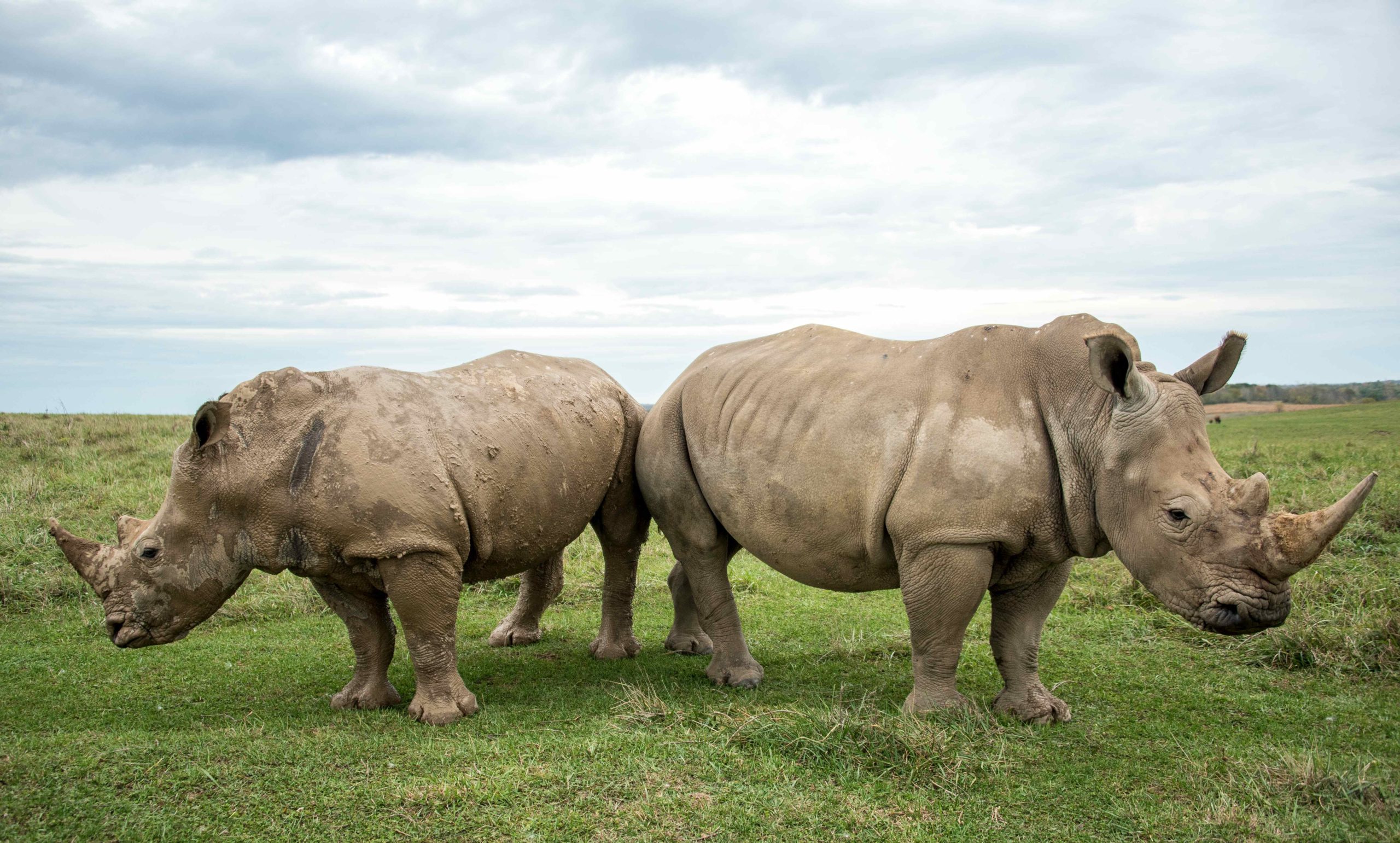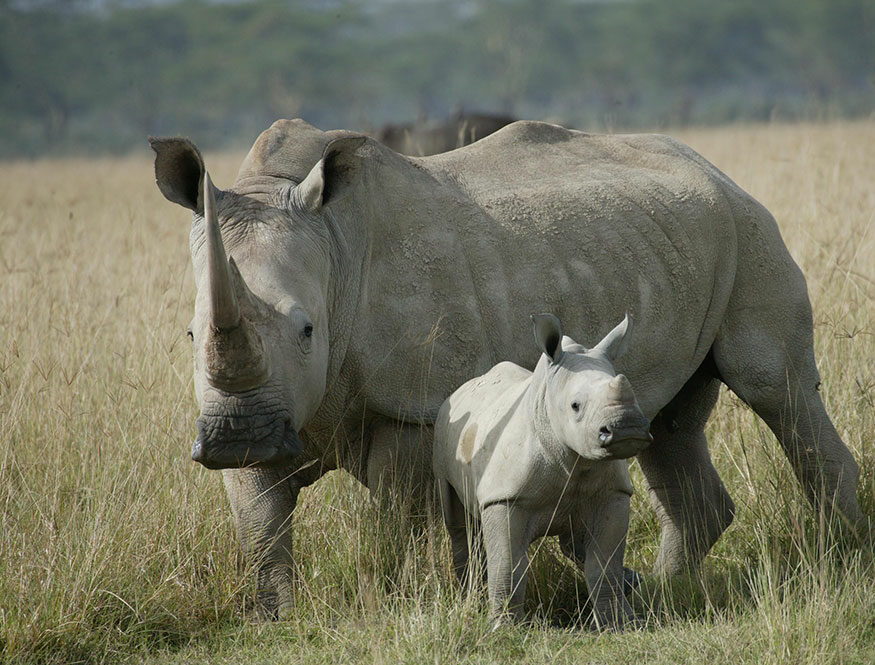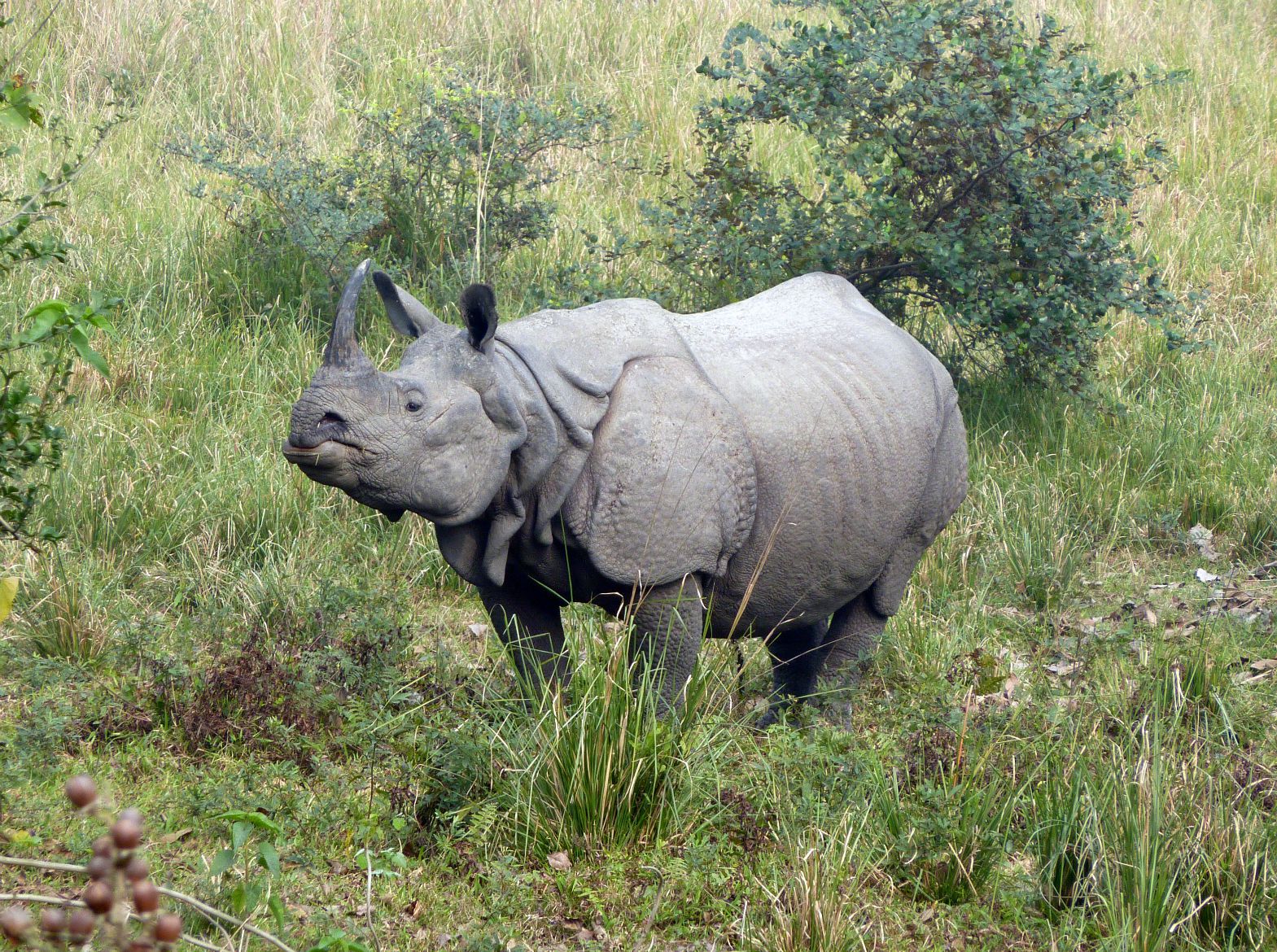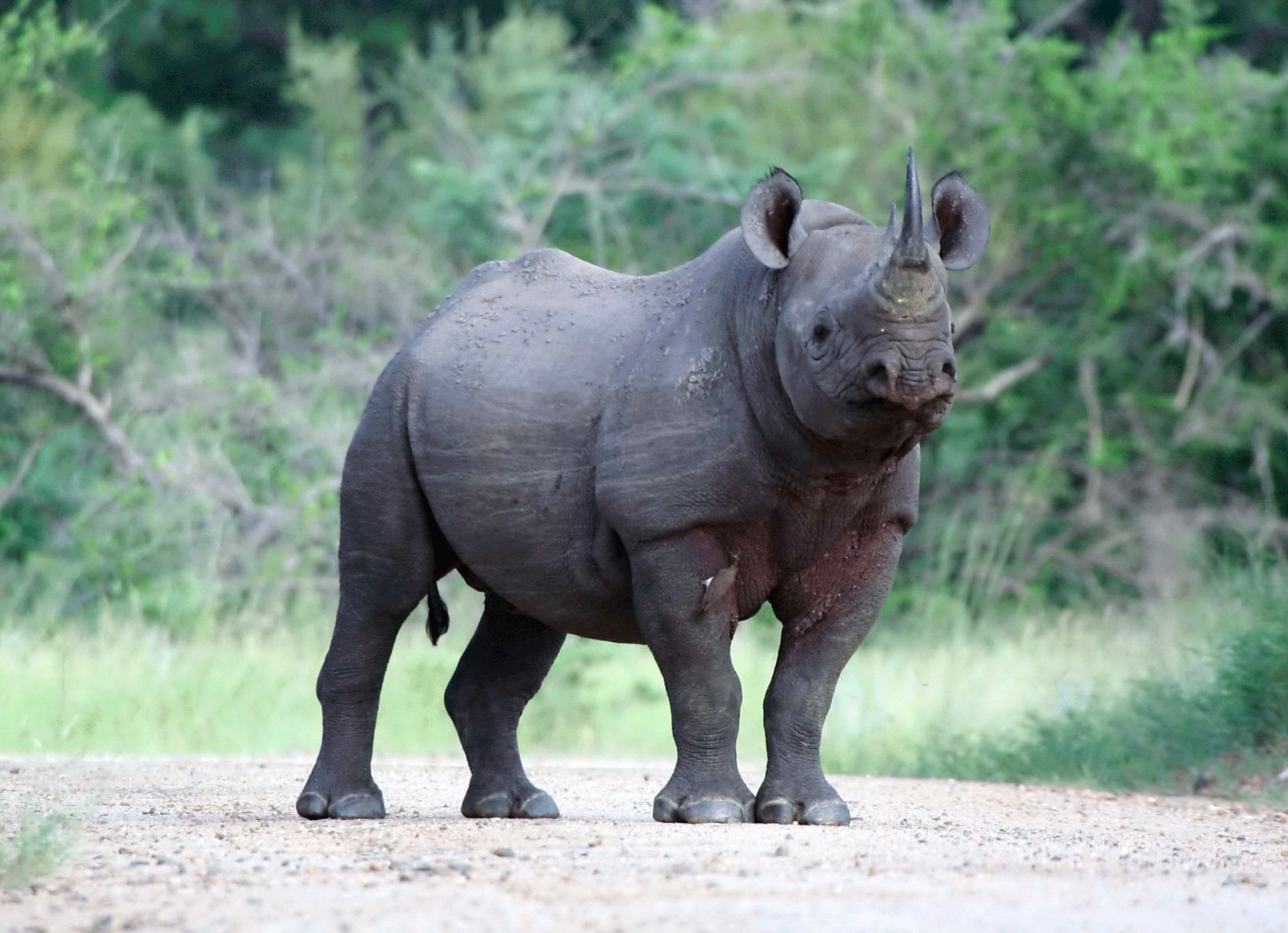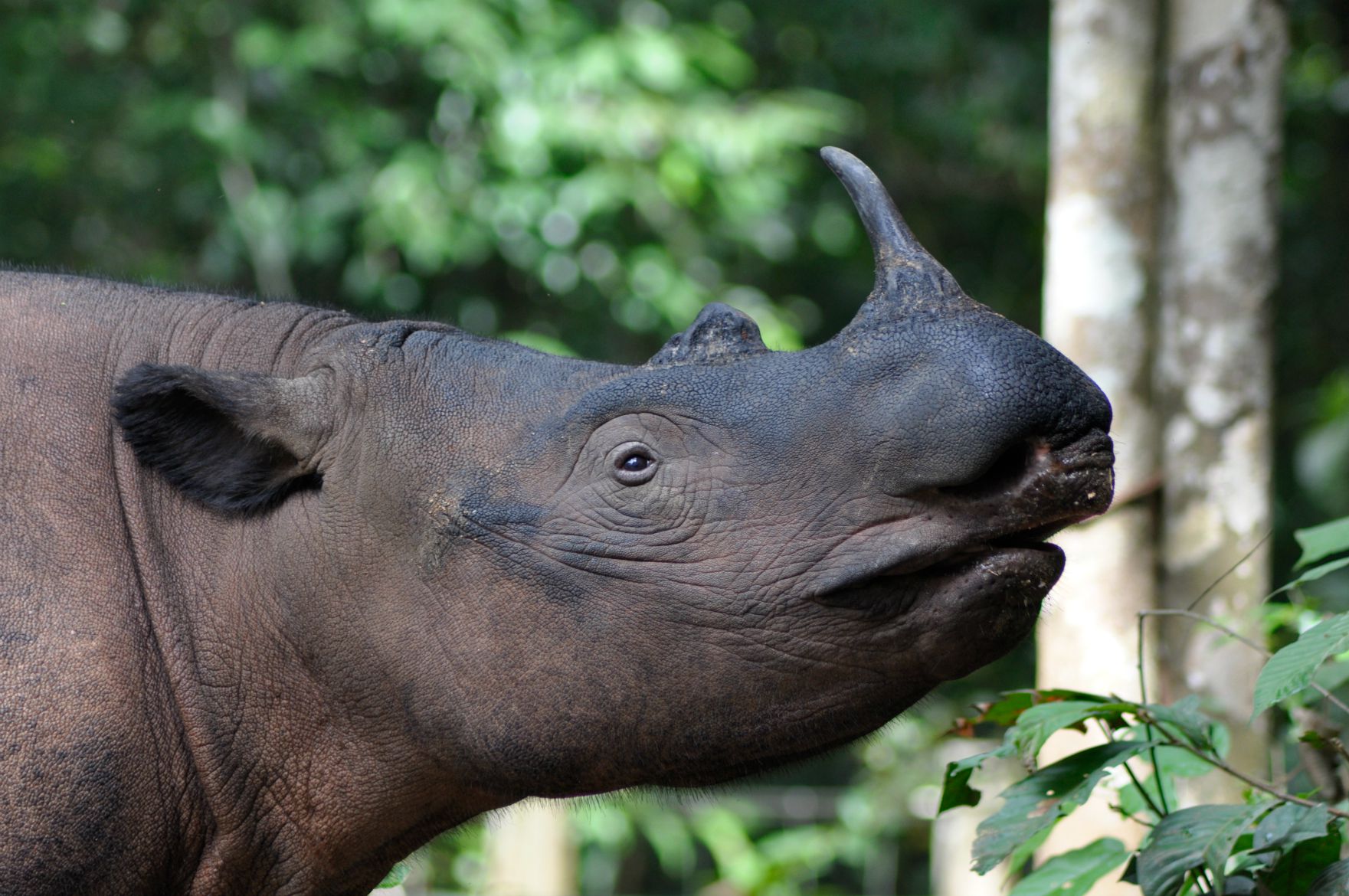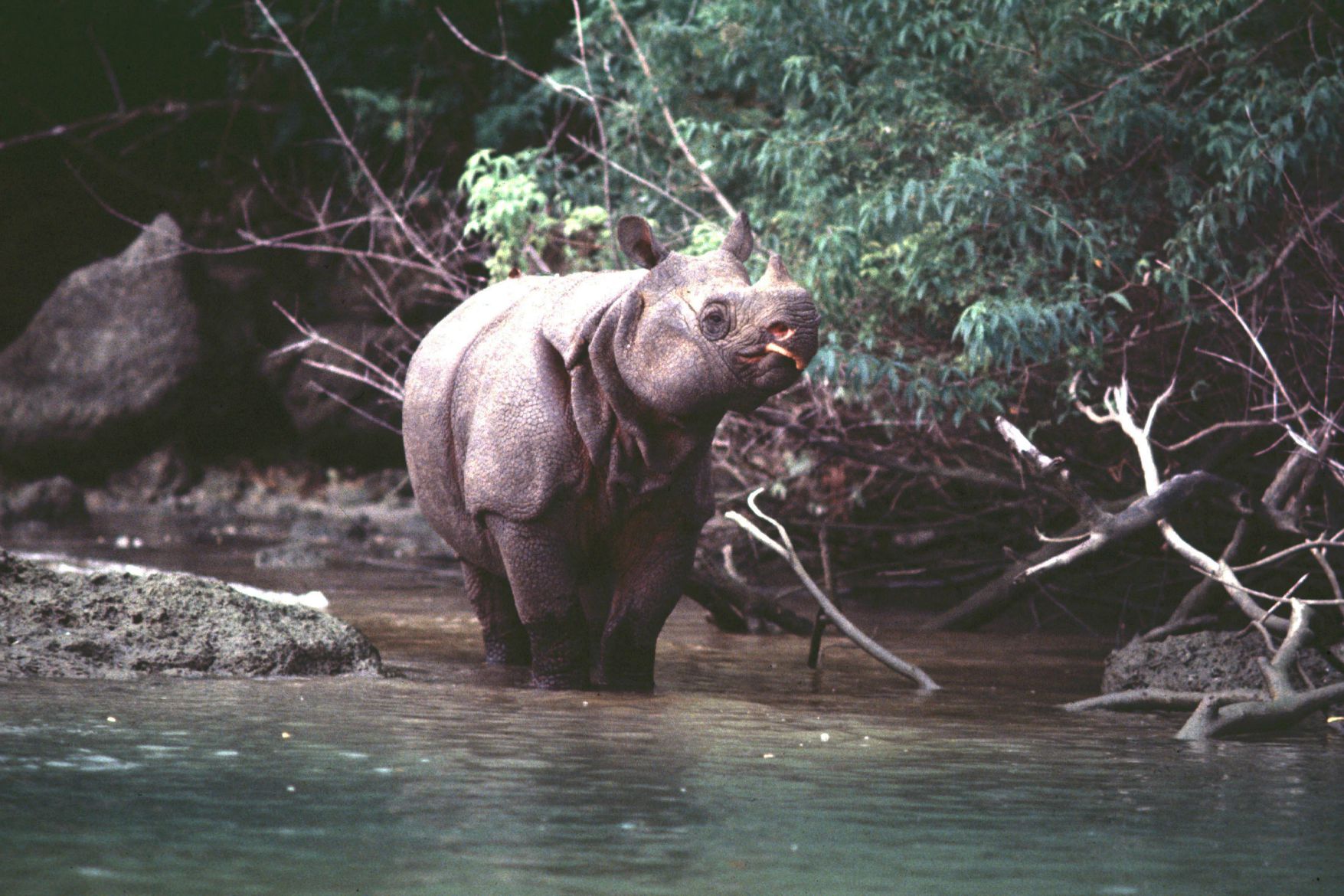The Rhino Family
White rhino
(Ceratotherium simum)
White rhinos are decreasing primarily due to poaching losses. The International Union for the Conservation of Nature (IUCN) Species Survival Commission’s African Rhino Specialist Group (AfRSG) reported that there are now an estimated 16,803 white rhinos – the first increase for the species in over a decade.
The white rhino, along with the roughly equal-sized greater one-horned rhino, is the largest land mammal after the elephant. It has two distinct subspecies, but only populations of the southern white rhino (Ceratotherium simum simum) remain viable. The northern white rhino (Ceratotherium simum cottoni) is extinct in the wild due to poaching, and only two females remain at a sanctuary in East Africa.
IUCN Red List Status: Near Threatened & Population Declining
Facts
Biology
- The white rhino lives in Africa, in long and short-grass savannahs.
- Just five countries hold 99% of Africa’s white rhinos – the vast majority of those in South Africa.
- White rhinos are grazers. Its wide, square upper lip is adapted for feeding on grasses.
- White rhinos can live to be 35-40 years of age. Gestation lasts approximately 16 months, and mothers give birth to one calf every 2-3 years.
- White rhinos are semi-social and territorial. Females and subadults generally are social, but bulls are often solitary.
Common Names
White rhinoceros is taken from the Afrikaans word describing its mouth: “wyd”, meaning “wide”. Early English settlers misinterpreted the “wyd” for “white”.
It is also sometimes called the square-lipped rhinoceros.
Scientific Name and Origin
Ceratotherium simum Ceratotherium from the Greek “cerato”, meaning “horn” and “thorium”, meaning “wild beast” and “simum” from the Greek simus, meaning “flat nosed.”
Current White Rhino Numbers and Distribution
There are an estimated 16,830 white rhinos in the wild.
Physical Characteristics
SIZE
Weight: 4,000-6,000 lbs (1,800 – 2,700 kg)
Height: 5 – 6 feet (1.5 – 1.8 m) tall at shoulder
Length: 10-16 feet (3 – 5 m) length of head and body
HORN
White rhinos have two horns. The larger front horn measures 37 – 79 inches (94 – 201 cm). The rear horn measures up to 22 inches (55 cm) long.
Other Features
Relatively broad snout with a square lip.

